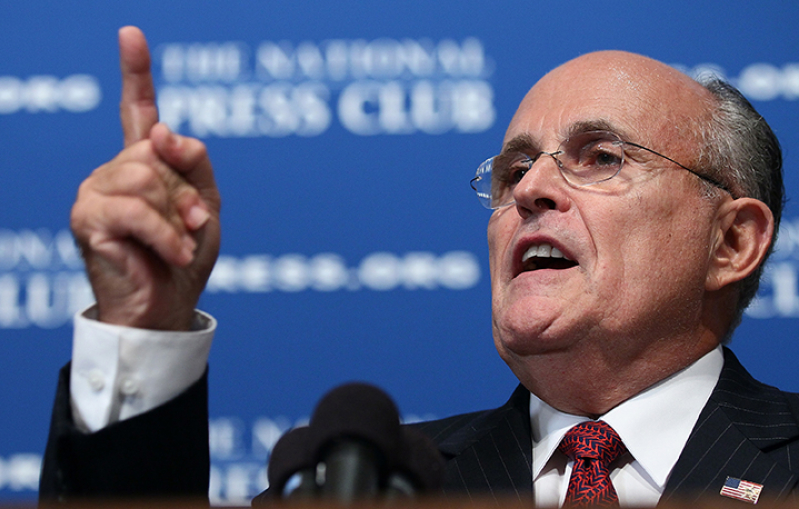
Last week, former New York City mayor Rudy Giuliani famously said that he doesn't believe that President Barack Obama loves America, erupting a firestorm of both criticism and support. But despite comments regarding the nature of Giuliani's statement, the question is now being seriously considered more than ever: Does Obama love America?
"I do not believe, and I know this is a horrible thing to say, but I do not believe that the president loves America," Giuliani said during a private dinner for presidential candidate Scott Walker that was recorded by news site Politico. "He doesn't love you. And he doesn't love me. He wasn't brought up the way you were brought up and I was brought up through love of this country."
Several prominent political experts from both sides of the spectrum have taken shots at the question, with most liberals saying that Giuliani is simply trying to get attention as he misses the spotlight, and most conservatives saying that he brings up an excellent point. Even a 12-year-old boy weighed in on the subject, naming several reasons why he believs the president actualy hates the country.
The fact is, without the president coming out and saying publicly that he hates the country, it's a hard matter to prove.
The Washington Post's Ed Rogers explored the president's overall political image, but stated that it's his policies and declarations that speak louder. "From the beginning, this president's misguided approach to foreign policy has suggested something about what he sees as America's place in the world," Rogers stated. "It goes all the way back to the 2008 campaign, when then-Sen. Obama said he would agree to meet unconditionally with America's enemies, including the leaders of Venezuela, Iran and North Korea. This willingness to accommodate America's traditional enemies and at times, disregard old friends, has been a nagging and persistent pattern in the administration from when he was first elected to the present day. Most recently, the president's gift of recognition to our traditional enemy Cuba - while getting nothing in return - and his inaction as another traditional enemy, Russia, makes a mockery of peace talks and interferes in a country that wants the United States to come to its aid just add to the idea that Obama is quick to let America's enemies have their way."
This point is especially obvious when you consider Obama's recent refusal to say that the terrorist Islamic State has anything to do with Islam. His point is understandable as he wants to make sure to appease Islamic Americans and not start any kind of nationwide backlash against them, but his intentions are backfiring.
Could you imagine if other war-time presidents refused to acknowledge a self-proclaimed enemy of the country as a threat? How different would society be if Franklin Roosevelt or Harry Truman downplayed Adolf Hitler's thirst for world dominance? It's a scary thought.
Ironically enough, a recent poll shows that Americans believe that Barack Obama is the country's worst president since World War II with George Bush not far behind. This, of course, may have more to do with the power of cognitive memory (have we forgotten about Richard Nixon already?) than anything else, but the fact remains that the people have spoken. Even if Obama doesn't hate America, Americans sure seem to hate him.
Giuliani clarified his initial remarks in an interview with Fox & Friends on Thursday, saying that he wasn't questioning Obama's patriotism. "What I'm saying is, in his rhetoric, I very rarely hear the things that I used to hear Ronald Reagan say, the things that I used to hear Bill Clinton say about how much he loves America.
"I do hear him criticize America much more often than other American presidents," he continued. "And when it's not in the context of an overwhelming number of statements about the exceptionalism of America, it sounds like he's more of a critic than he is a supporter. You can be a patriotic American and be a critic, but then you're not expressing that kind of love we're used to from a president."







